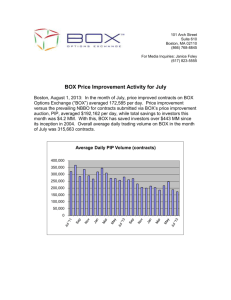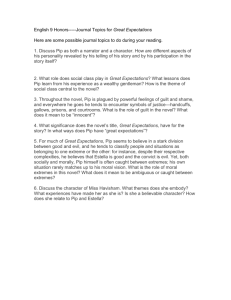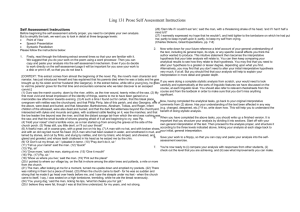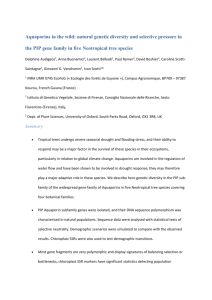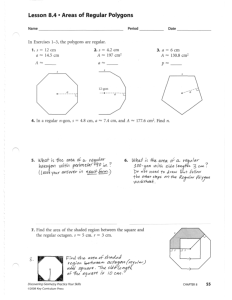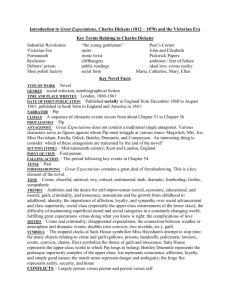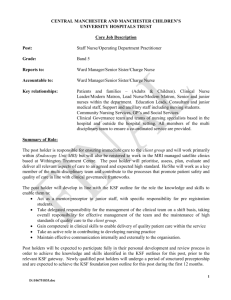Human Resources Policy No. HR06 Maintaining High Standards of
advertisement
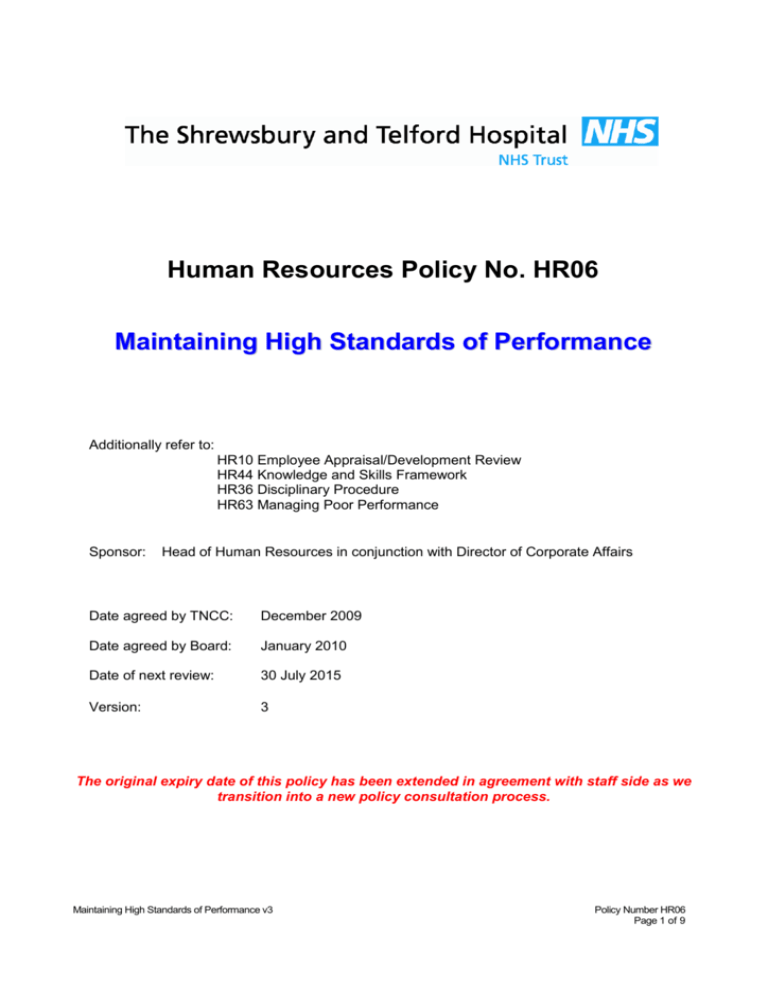
Human Resources Policy No. HR06 Maintaining High Standards of Performance Additionally refer to: HR10 Employee Appraisal/Development Review HR44 Knowledge and Skills Framework HR36 Disciplinary Procedure HR63 Managing Poor Performance Sponsor: Head of Human Resources in conjunction with Director of Corporate Affairs Date agreed by TNCC: December 2009 Date agreed by Board: January 2010 Date of next review: 30 July 2015 Version: 3 The original expiry date of this policy has been extended in agreement with staff side as we transition into a new policy consultation process. Maintaining High Standards of Performance v3 Policy Number HR06 Page 1 of 9 Contents Page Number Section 1 Introduction 3 Section 2 Scope 3 Section 3 Setting Standards of Performance 3 Section 4 Performance Review and Development 5 Section 5 Performance Improvement Plans (PIPs) 6 Section 6 Alternative Employment 7 Appendix A Performance Improvement Plan Proforma 8 Maintaining High Standards of Performance v3 Policy Number HR06 Page 2 of 9 1. INTRODUCTION 1.1 This policy sets out how managers should handle issues concerning declining or substandard performance and provides guidance on how to encourage improvement. It also provides a mechanism by which staff who have concerns about their own performance or ability to carry out their duties may self-report these to managers, and so be supported towards improvement. 1.2 The Trust is committed to encouraging and supporting staff to perform to the best of their ability. This includes encouraging staff to self-report if they have concerns about their own performance or ability to carry out their duties. Therefore, in managing poor performance, the emphasis must be on supporting the individual to achieve satisfactory standards. 1.3 This policy is not designed to be used where an individual’s performance on an occasion is so serious as to warrant immediate formal action under the Disciplinary Procedure. 2. SCOPE 2.1 This policy applies to all staff other than doctors and dentists, for whom separate procedures apply. 2.2 In implementing this policy, managers must ensure that all staff are treated fairly and within the provisions and spirit of the Trust’s Equal Opportunities Policy. Special attention should be paid to ensuring the policy is understood when using it for staff new to the NHS or Trust, by staff whose literacy or use of English is weak or for persons with little experience of working life. 3. SETTING STANDARDS OF PERFORMANCE 3.1 The Trust requires that all staff perform to at least the minimum standards required by the role for which they are employed. Employees have a responsibility to achieve a satisfactory level of performance. 3.1 Managing the performance of staff is crucial to the effectiveness of any unit. Managers have a responsibility to support and encourage good performance and also to tackle declining or substandard performance. The responsibility for determining the standards required for any role also rests with Managers. 3.2 Standards of performance provide a means of judging what is acceptable to the Trust. They should be specific, realistic, measurable and appropriate to the role. 3.3 Required standards of performance may be specified in a range of written documents (eg: job descriptions, KSF Outlines, Contracts of Employment, Codes of Conduct, Procedures, Protocols etc) or be unwritten implicit standards (eg being polite to patients, relatives and colleagues). 3.4 Managers are also responsible for ensuring employees are competent to undertake the duties and tasks required of them. Any shortfall in performance should be pointed out to the employee concerned and consideration given as to whether this is due to inadequate instruction, training, supervision or some other failing outside the employee’s control. Maintaining High Standards of Performance v3 Policy Number HR06 Page 3 of 9 3.5 Employees are responsible for notifying managers of any concerns they have regarding their ability to undertake the duties and tasks required of them. 3.6 Where an individual fails to reach the required performance standard, the prime responsibility for addressing the problem lies with the line manager, although day to day supervision and monitoring of performance will often be delegated. 3.7 Where performance fails to meet the required standard, or where an individual self-refers concerns about his/her own performance or ability to carry out his/her duties, managers/supervisors should meet with the individual without delay, clarify in what way current performance fails to meet the required standard and explain the standards required. In all cases, the cause of the poor performance should be investigated, with the individual being asked for an explanation and any explanation checked. The manager/supervisor should also consider whether any shortfall is due to unreasonable expectation or lack of proper explanation on their part and whether performance might be improved by suitable development, training or improved supervision. 3.8 Where the reason for the poor performance is a lack of the required skills, the employee should be assisted by the provision of appropriate development, training or guidance and given reasonable time to reach the required standard. In some cases this may involve the individual temporarily changing their working rota in order to facilitate the development, training or supervision. 3.9 Informal Action In most cases, it is expected that shortfalls in performance will be temporary and that informal corrective action (as set out above) by the immediate supervisor or manager will be sufficient to enable the individual to attain and maintain the required standards. The approach will, therefore, be one of support and constructive criticism, with a focus on development. Managers and staff may wish to consider the use of such support mechanism as mentors or refresher training where this is appropriate. 3.10 Formal action 3.10.1 Where initial action fails to result in the required improvement, or where the failure is sufficiently serious, the manager should meet formally with the individual and set out the following, which should be confirmed in writing after the meeting: the performance problem(s) the improvement that is required/standard to be achieved the timescale for achieving this improvement a review date the support to be provided to enable the individual to improve the consequences for the individual if they fail to meet the required standard within the specified timescale (i.e. that the matter will be handled in accordance with policy HR63 Managing Poor Performance and may ultimately result in termination of employment). At this stage the manager may wish to use a Performance Improvement Plan to set out what is required (see below). Maintaining High Standards of Performance v3 Policy Number HR06 Page 4 of 9 3.10.2 A Human Resources representative should be consulted before any formal action is taken in accordance with this procedure. The role of Human Resources includes advice and assistance to managers on matters relating to performance management and to ensure reasonable action is taken. A Human Resources representative may be present at this formal meeting. 3.10.3 Where the matter is to be put on to a formal footing the individual should be advised prior to the meeting of their right to be accompanied at the meeting by their Trade Union/Professional organisation representative or by a colleague from within the Trust. Where the person is to be represented it is their responsibility to arrange this for the required time and the representative will be given reasonable time off to be briefed on issues and to represent the employee. 3.11 Where an individual shows the required improvement, the manager should confirm this positively to the individual, both orally and in writing. The need for continued, but lighter, support should also be assessed and agreed so as to enable the improved performance to be maintained. 3.12 Where the individual fails to meet the required standard the manager may decide to extend the existing arrangements (e.g. by providing further support or training) or may decide to handle the matter under policy HR63 Managing Poor Performance. 3.13 New Entrants to the Team When an individual joins the team, whether on initial recruitment to the Trust or following an internal transfer or promotion, the line manager should explain the standard of work required in the new role and clearly set out their expectations of the individual as part of the individual’s induction to the team. Special attention should be paid to ensuring that these standards are understood by those new to the NHS or Trust, by staff whose literacy or use of English is weak and by persons with little experience of working life. 3.14 Job descriptions should accurately and fairly reflect the main purpose and key responsibilities of each job, but should not be viewed as being an exhaustive list of the duties or tasks to be undertaken by the jobholder. All staff may be required to carry out other duties that are within their competence, according to the needs of the service. 3.15 The Knowledge and Skills Framework outline for the post should be complete, up to date, and reflect the range of knowledge and skills required by the posthholder to carry out the requirements of the job description. Appraisals/Development Reviews and Personal Development Plans will be based on the KSF Outline. 3.16 Staff should not be required to perform duties for which they are not competent, other than when working with appropriate supervision or when under training. Good practice in recruitment and selection will minimise the risk of poor performance from new entrants to the team. Similarly, good practice in appraisal and personal/professional development will minimise the risk of poor performance arising in established staff. 4. PERFORMANCE REVIEW AND DEVELOPMENT 4.1 The Trust’s appraisal system provides a systematic method of regularly reviewing an individual’s performance in a job and assesses their training and development needs within the role. It is essential that this process be carried out regularly and in a fair and objective manner. Maintaining High Standards of Performance v3 Policy Number HR06 Page 5 of 9 4.2 The assessment criteria used in appraisal should be non-discriminatory and must be applied within the provisions and spirit of the Trust’s Equal Opportunities Policy. Criteria should be reasonable, relevant to the requirements of the job and measurable. 4.3 Appraisers should be aware of the dangers of stereotyping and of making assumptions based on inadequate knowledge. The Trust’s internal training programme for appraisers will cover this issue and the need to assess performance based on reliable evidence. 5. PERFORMANCE IMPROVEMENT PLANS (“PIPs”) 5.1 A PIP is a tool which can be used in any case where a performance problem is identified. Sub-standard performance can be dealt with on an informal or formal basis and PIPs can be used in both situations. A PIP pro-forma is attached at Appendix A. 5.2 The use of a PIP provides an effective process for the monitoring of under-performance. The PIP provides a mechanism for clarifying performance expectations but also for demonstrating that the Trust has acted reasonably in the way it is managing the performance problem. 5.3 A PIP outlines a number of specific, required actions designed to help the individual attain the required standards. It should normally be agreed with the individual with feedback on the individual’s current performance being provided via review meetings at fortnightly intervals (or other agreed review period). 5.4 The period of time taken to implement a PIP will depend on the nature of the underperformance and the training required, but should normally take no longer than three months. For employees with less than one year’s service with the Trust, the PIP should normally be implemented over a one month period. 5.5 Where a manager wishes to address the performance problem informally, they should advise the individual that their performance is less than satisfactory as soon as possible. A PIP may be used at the informal stage of this procedure to assist the individual in improving their performance. 5.6 Where a manager wishes to address the performance problem on a more formal basis, a PIP may be used ahead of any formal action under policy HR63 Managing Poor Performance procedure or in support of that action. 5.7 PIPs are an obvious tool to use following a poor appraisal or where an individual fails to achieve the standard required to pass through a KSF gateway (use in accordance with HR44 Knowledge and Skills Framework). In such cases it is essential that the individual’s performance be regularly monitored and the PIP period should not necessarily be restricted to quarterly formal monitoring. A formal review could be initiated at any time with prior notice to the individual concerned. 5.8 If the individual fails to respond to the formal PIP, the performance problem should then be handled in accordance with policy HR63: Managing Poor Performance. Maintaining High Standards of Performance v3 Policy Number HR06 Page 6 of 9 6. ALTERNATIVE EMPLOYMENT 6.1 In some cases, the individual may request a move to an alternative role. The line manager should refer such requests to the relevant Divisional General Manager or Head of Service, who will review the alternatives that may be available. If the request is for a move to another role at the same band, any resulting transfer will be on the basis of a competitive interview against the requirements of the new role and alongside any other candidates; the performance improvement requirement will be carried forward into the new role. If the request is for a move to a lower band, the Divisional General Manager/Head of Service has discretion to offer the individual a transfer into a suitable alternative position without the need for competitive interview; such cases should be referred to HR for guidance. 6.2 Where the poor or deteriorating performance is identified as possibly being the result of ill health or declining health, the manager should refer the matter to HR for guidance. The matter should then be handled in accordance with the appropriate HR policy (HR31 Managing Sickness Absence, HR32 Ill Health Retirement or HR40 Employment of People with Disabilities). In such cases an Occupational Health assessment will be sought ahead of any decision, and alternatives may include making reasonable adjustments to the current role or redeployment into a suitable alternative position. 6.3 Where an individual is redeployed at their request into an alternative role, the individual will move to the terms and conditions applicable to the new role. 7. MONITOR AND REVIEW 7.1 The Trust will regularly monitor and review activity under this policy and its effectiveness in resolving concerns about performance. 7.2 Measures will include: Number of cases being referred to HR Advisors/Managers for support. Number of appeals against decisions taken under this procedure. On-going discussions with TNCC representatives. Maintaining High Standards of Performance v3 Policy Number HR06 Page 7 of 9 PERSONAL IMPROVEMENT PLAN Appendix A Name of Employee Standards Required (refer to KSF) KSF ref Area of Work Specific Activity Standard Required Support Provided Employee Action 1 2 3 4 5 /Continued Signed …………………………………..…………………………… (Line Manager) Date …………………………………………………. Signed …………………………………..…………………………… (Employee) Date …………………………………………………. Maintaining High Standards of Performance v3 Policy Number HR06 Page 8 of 9 REVIEW OF PERSONAL IMPROVEMENT PLAN Review 1 Review 2 Review 3 Review 4 Review 5 1 2 3 4 5 Date Maintaining High Standards of Performance v3 Policy Number HR06 Page 9 of 9 Final Review
